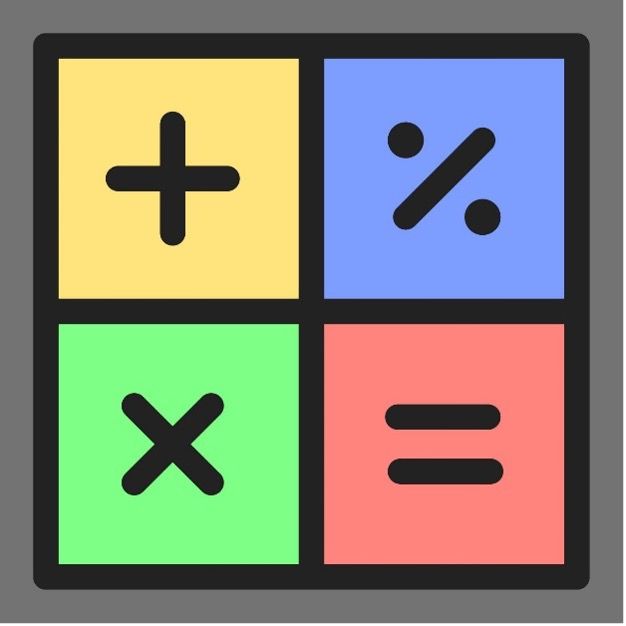
A common misconception regarding software engineers is they are all quants (quantitive analysis) or immensely talented at math. This is often a hurdle for non-traditional learners trying to become software engineers.
Do you need to have strong math skills to become a software engineer?
If you want to enroll in a software engineering bootcamp but are unsure if you’re qualified due to lacking math skills, don’t be.
Although software engineers and mathematicians share many traits like critical thinking, advanced math skills are not required for professional software engineers. Bootcamp curriculums are not built around complex math sections, and entry-level jobs do not require complex equation solving.
To succeed at a bootcamp and early software engineer career, you need attention to detail and the ability to think critically. You can leave your graphing calculator and protractor at home.
Is Math a Big Part of Bootcamp Lessons?

Not all bootcamps are alike. Some bootcamps, such as data science bootcamps, require intermediate to advanced math skills. You must understand high-level probability and statistics and create models to pull insights from data.
Software engineering bootcamps are different from this.
Much of web development is understanding how client devices (your phone, computer, tablet) talk to servers (Google, Facebook, or Instagram’s computers). Understanding user communication, interfaces, data, services, and errors requires logical thinking but not advanced math.
This is outlined in the curriculum for Thinkful’s software engineering bootcamp, which we will walk through below. For this 12-week bootcamp, there are five different modules.
Module One: “Start with the Client-side”
This focuses on the front-end languages of HTML, CSS, and JavaScript. You’ll learn how to use them to create functional user interfaces.
HTML is for structure, CSS is for styling, and JavaScript is for adding functionality. JavaScript is the logical language that makes pages interactive.
Beyond counting iterations, there is little to no math involved with client-side design.
Module Two: “Master the REST Software Architectural Style”
This module focuses on logic for getting, updating, and persisting data. It’s more technical than the first module but focuses more on logic than math. You would look at how to model data as objects, set up databases, and return records and data on request. Again, this is very logic-driven, requiring little to no math.
Module Three: “Solve Problems with Data Structures and Algorithms”
We get very logical here. This section covers how to write both time and memory-efficient algorithms and master a scripting language, such as JavaScript or Python, to solve any problem. The logic here is intense but consists of many either-or decisions rather than building or using advanced mathematics.
Module Four: “Employ an Agile Approach”
Software development employs a type of project management called Agile. This module lets students learn about this project management approach by planning and developing their first full-stack application. This module builds on the first three modules and is an iterator for students to practice and grow their skills in full-stack development.
Module Five: “Impress Employers”
This module focuses on how to pull together your experiences and projects in a way that will impress potential employers. The focus is to sharpen your soft skills as a communicator, storyteller, and teammate. Again, nothing here requires math.
This curriculum is similar to what you would get at any other bootcamp. Although longer bootcamps may spend more time in any of the modules or cover multiple languages, the module topics mentioned above encompass what is included in most software engineering curriculums.
From what we covered, it is clear that you need to be a logical thinker but don’t require advanced math knowledge or learn advanced math to complete a software engineering bootcamp.
Will My First Software Job Require Advanced Math?
The most common types of roles for both bootcamp and university graduates are entry-level roles working on a specific part of a tech stack. These roles require little to no work experience and are structured to attract promising early-career developers and give them opportunities to learn and grow.
Beyond the label “entry-level,” what else can we learn about these roles? We may find some answers in what WayUp identifies as the top 5 most common software developer jobs for entry-level applications.
- Back-end Engineers
- Front-end Engineers
- Operations Engineers
- QA or Test Engineers
- Full Stack Engineers
In the previous sections, we discussed the different modules of a typical software engineering bootcamp and how little math was involved. The positions listed above fold neatly into modules.
Module One focused on front-end engineering, while Module Two focused on back-end engineering. Full-Stack engineering is the combination of both. A QA engineer will write tests for the logic of an app or website’s code. This relates to Module Two and an operations engineer’s work to keep the apps secure and accessible to users by focusing on skills developed in Module Four.
None of these functions for entry-level roles deviate from the skills built during the bootcamp. None require advanced skills, as basic math with a strong sense of logic allows new developers to thrive.
Advanced math is not a focus of entry-level roles. Early roles focus on learning patterns and anti-patterns of code, understanding how complex applications work together, and finding ways to structure code to be scalable and accessible.
None of these items require advanced math, so you do not have to worry about this for your first position.
What Software Jobs Require a Lot of Math?

There are two software engineering career paths that require a strong understanding of mathematics. These two paths are AI/ML (artificial intelligence and machine learning) and game development. Both require building complex modeling algorithms that go beyond the basic algebra required for most full-stack logic.
Game development requires advanced math skills to:
· Create textures and gradients for in-game objects
· Develop and fine-tune physics engines for how objects interact with each other
· Maintain relationships between sets of objects
This logic requires advanced state management and equations that dictate how objects bend, move, twist, and turn on a user’s screen.
AI/ML developer positions focus on taking large amounts of data and drawing conclusions or programming responses to the outputs. This could entail a “smart” chatbot that helps users on a travel booking website or an advanced trading bot that tracks daily stock movements to direct billions of dollars through the financial sector.
To handle unpredictable user inputs and massive amounts of input data, AI/ML developers must build complex mathematical models to predict and react to data. These models far surpass basic algebra and even calculus. It is not impossible to break into either of these fields if you are interested in them. However, they are not representative of the skills needed to attend a software engineering bootcamp or be able to get your first job.
Software engineering is logic, not math.
You Can Start Your Software Engineering Journey Today
If you feel confident and excited about pursuing a career in software engineering, attending an online bootcamp may be your next step. We reviewed the curriculum for the 12-week online bootcamp for Thinkful’s online bootcamp, which is a fantastic option for full-time or part-time learners!

